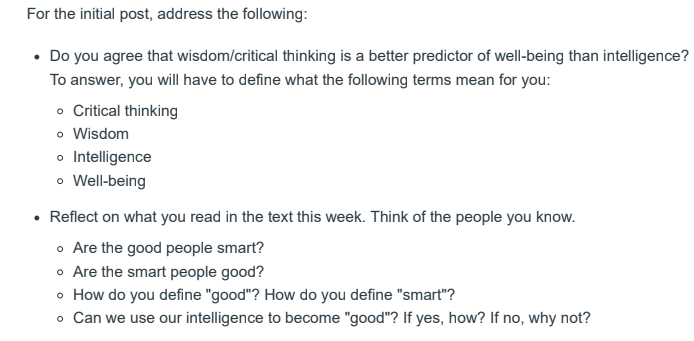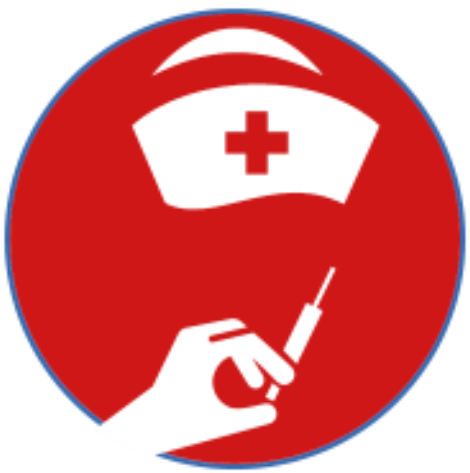
Introduction
In 2012, Psychologist Heather Butler studied the importance that critical thinking plays in our everyday lives. “Critical thinking is not just the new buzzword in education. Critical thinking involves real outcomes that can be measured, predicted, and—perhaps for the negative life events—avoided” (Butler, 2012, p. 725).
In 2013, studies by Grossmann, Varnum, Kitayama, and Nisbett concluded that wise reasoning, rather than intelligence, was a predictor of well-being. In 2017, Dr. Butler and her colleagues, referencing the Grossmann study and based on their own research, determined that the ability to think critically was a better predictor of effective life decisions than was intelligence (Butler, Pentoney, & Bong, 2017).
Initial Post Instructions
For the initial post, address the following:
- Do you agree that wisdom/critical thinking is a better predictor of well-being than intelligence? To answer, you will have to define what the following terms mean for you:
- Critical thinking
- Wisdom
- Intelligence
- Well-being
- Reflect on what you read in the text this week. Think of the people you know.
- Are the good people smart?
- Are the smart people good?
- How do you define “good”? How do you define “smart”?
- Can we use our intelligence to become “good”? If yes, how? If no, why not?
Answer:
Among critical thinking, wisdom, and intelligence, I am inclined to agree that wisdom and critical thinking are a much more reliable predictor of an individual’s wellbeing as opposed to intelligence. To best understand this. We should start by first understanding the concept of wellbeing. In their research, Grossman and colleagues (2013) assessed various variables that were used as indicators of the participants’ wellbeing. These included their relationship satisfaction, emotional discourse, longevity, and life satisfaction (Grossmann et al., 2013). Basically, the term wellbeing is used in reference to an individual’s state of happiness, good health, and comfort. Secondly, one needs to understand the differences between critical thinking/wisdom and intelligence. The term…. CONTINUE READING
